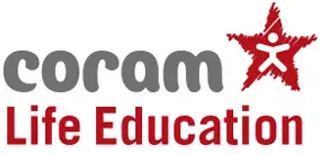Bookings closed
For this session we are delighted to welcome David Trickey to share his knowledge and insights into trauma, specifically exploring children’s responses to traumatic events, when it might become problematic, how it might present itself and why schools make perfect therapeutic environments to support young people who have experienced trauma. David will also be answering your questions in a session facilitated by leading education professional Professor Barry Carpenter.
David Trickey is a Consultant Clinical Psychologist leading the trauma pathway in Northamptonshire CAMHS; is the co-director of the UK Trauma Council and continues to focus on direct clinical work and the supervision of other clinicians working with traumatised children and young people
About the ‘Ask the Expert’ sessions
This FREE ‘Ask the Expert’ online event is exclusively for Teachers, and offers insights into the latest evidence-base around anxiety in children & adolescents. They are brought to you as part of an exciting new partnership between The Association for Child and Adolescent Mental Health (ACAMH) and Coram Life Education (CLE), two charities who are dedicated to making a difference to the mental wellbeing of children and young people.
Following our pilot events in Autumn 2021 / Spring 2022, we have a series of ‘Ask the Expert’ events over the coming year, to help close the knowledge gap in a range of topics that now form part of the statutory Relationship, Sex and Health Education (RSHE) curriculum. We think it is important to help equip teachers with knowledge in areas that may be less familiar to them, which is grounded in academic rigour.
Our ‘Ask the Expert’ sessions are primarily aimed at knowledge building, we will be working on other
initiatives to help evolve pedagogical approaches based on the evidence we share at these ‘Ask the
Expert’ events.
About the event
By age 18 years, up to 80% of children are likely to have been exposed to at least one potentially traumatic event. However, most children who are exposed to potentially traumatic events do not develop post-traumatic stress disorder (PTSD). Research suggests that up to 7% of children will have developed PTSD by age 18 years, and up to 4% of children have PTSD every year (Breslau et al, 2006; Copeland et al, 2007; McLaughlin et al, 2013). Schools play an integral role in supporting children & young people’s mental health, as an anchor institution in society they can identify, refer and support those at risk, whilst creating positive environments that encourage all children to learn and thrive.
As teachers, it is important to be aware of common adverse childhood experiences and when and how these may be affecting any of their pupils, in order to be able to look for the cues and clues that children and young people may present and to understand how they may be able to better support them at school.
Key Takeaways
- Understand how trauma manifests, by outlining the complex and subjective nature of trauma
and providing knowledge around when trauma can become problematic - Understand how trauma and maltreatment can affect the brain and impact on a child’s ability
to learn and interact effectively at school - Highlight why schools make great therapeutic environments, in supporting the psychological
needs of young people experiencing trauma
About the Speakers

David Trickey is a leading Consultant Clinical Psychologist specialising in trauma. He works as a Consultant Clinical Psychologist leading the trauma pathway in Northamptonshire CAMHS; is the co-director of the UK Trauma Council and continues to focus on direct clinical work and the supervision of other clinicians working with traumatised children and young people

Professor Barry Carpenter has been appointed to the ACAMH Board with special responsibility for disseminating our work to schools, teachers, and others involved in the education of children and young people. Barry is the UK’s first Chair of Mental Health in Education, at Oxford Brookes University
In a career spanning more than 40 years, Barry has held the leadership positions of Headteacher, Principal, Academic Director, Chief Executive, Inspector of Schools and Director of the Centre for Special Education at Westminster College, Oxford. In 2009, he was appointed by the Secretary of State for Education as Director of the Children with Complex Learning Difficulties and Disabilities Research Project. Since completing that research, Barry has overseen the development of a national project developing online ‘Training materials for teachers of children with severe, profound and complex learning disabilities’ www.complexneeds.org.uk
Full bio on ACAMH Board page.

Coram Life Education is the leading provider of relationships, health, wellbeing, and drugs education to almost half a million children across the UK, delivered under the strapline ‘Helping Children Make Healthy Choices’. Trained Educators use evidence-based, interactive, creative methods and resources to stimulate curiosity and imagination amongst children in 1 in 10 English and Scottish primary schools (2,041 schools).
Our memorable life skills sessions are currently delivered as ‘Life Base’ in school or as ‘SCARF Live Online‘ sessions via Zoom. Coram Life Education takes a three strand approach addressing children’s knowledge, skills and attitudes, and programmes are aligned with the National Curriculum (Citizenship, PSHE Education), covering all Key Stages. Coram Life Education helps schools meet their statutory requirements for Relationships and Health Education, children’s Spiritual, Moral, Social and Cultural development, and Ofsted inspection criteria for personal development, behaviour and welfare. Coram Life Education’s programmes are also aligned with Scotland’s Curriculum for Excellence. Recognising the role of the community and home life in influencing children’s choices, we design our programme with schools and deliver special sessions and assemblies for parents and carers to amplify our effectiveness.


